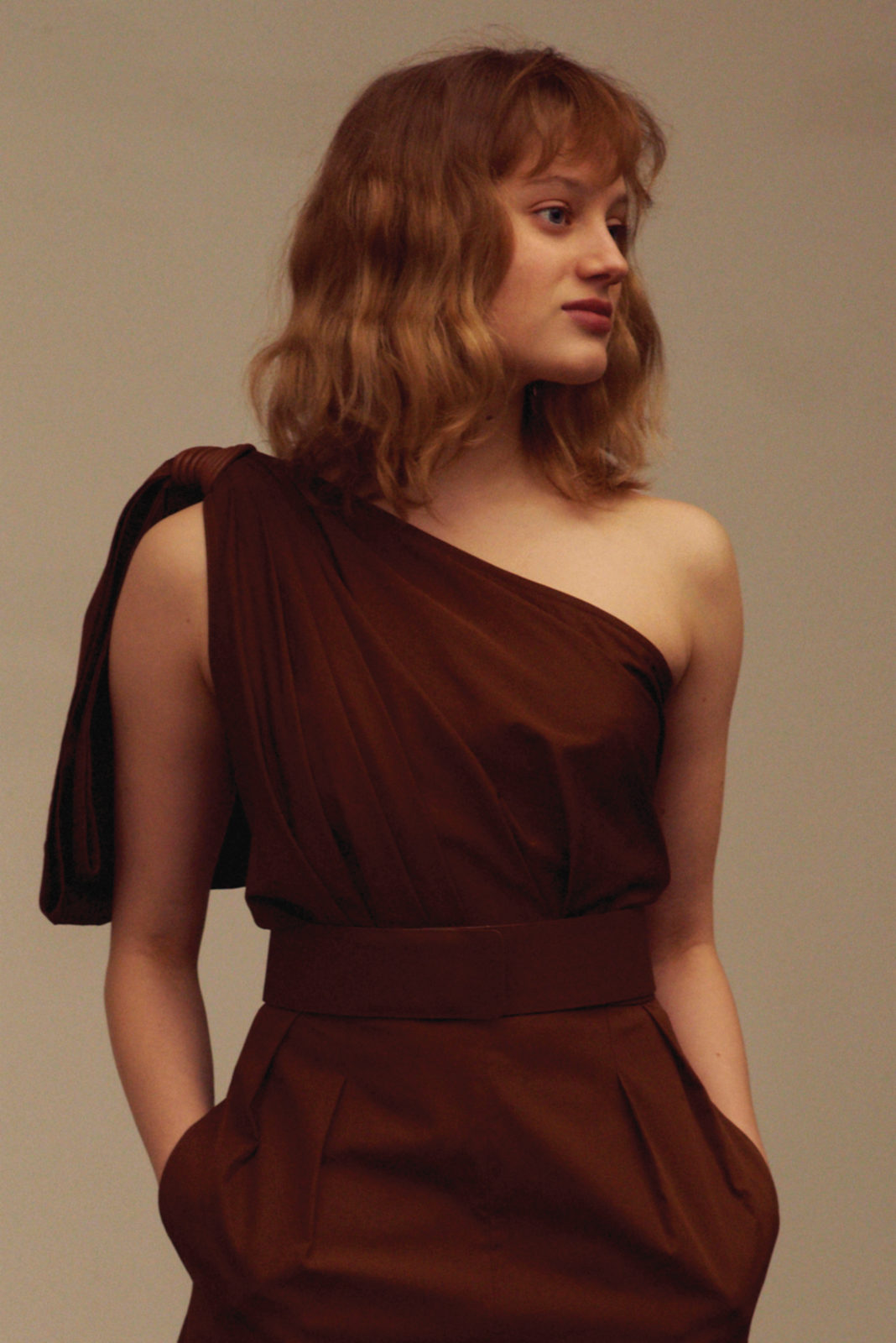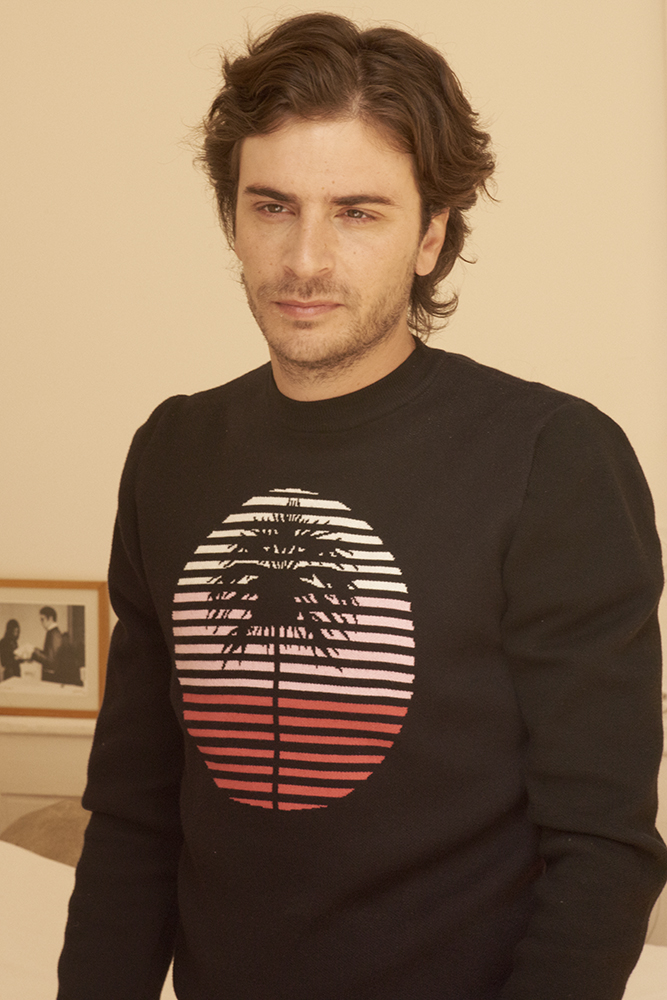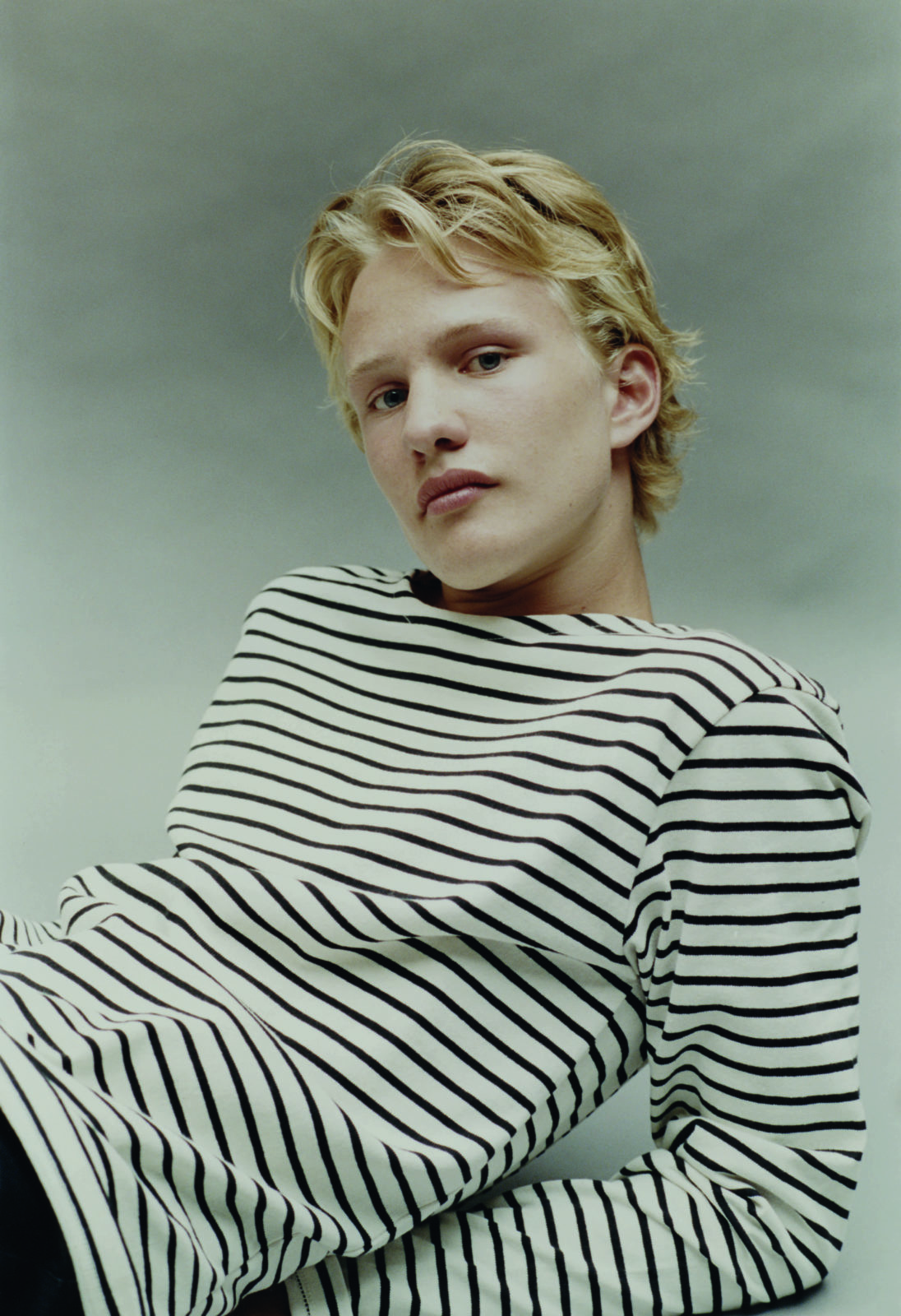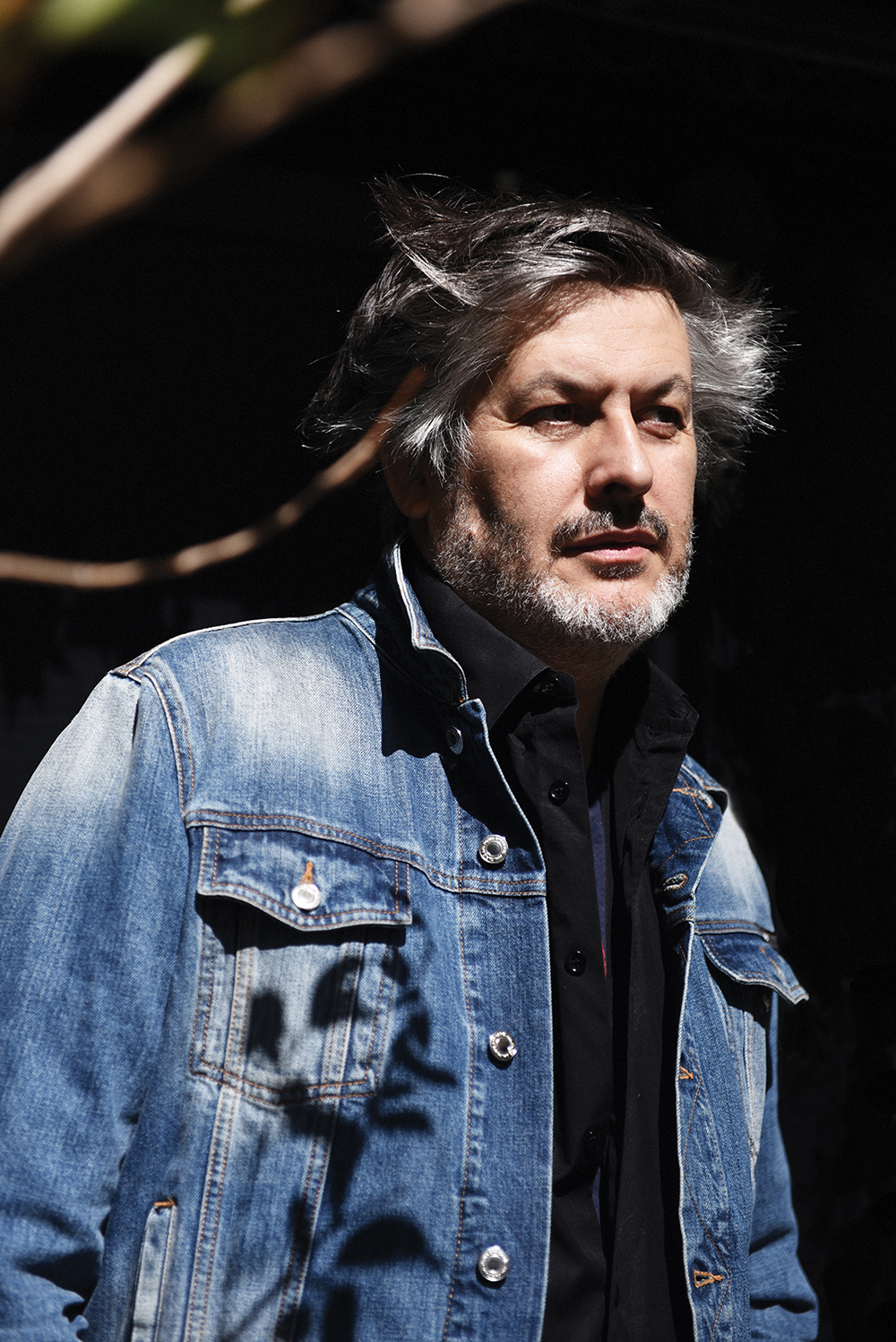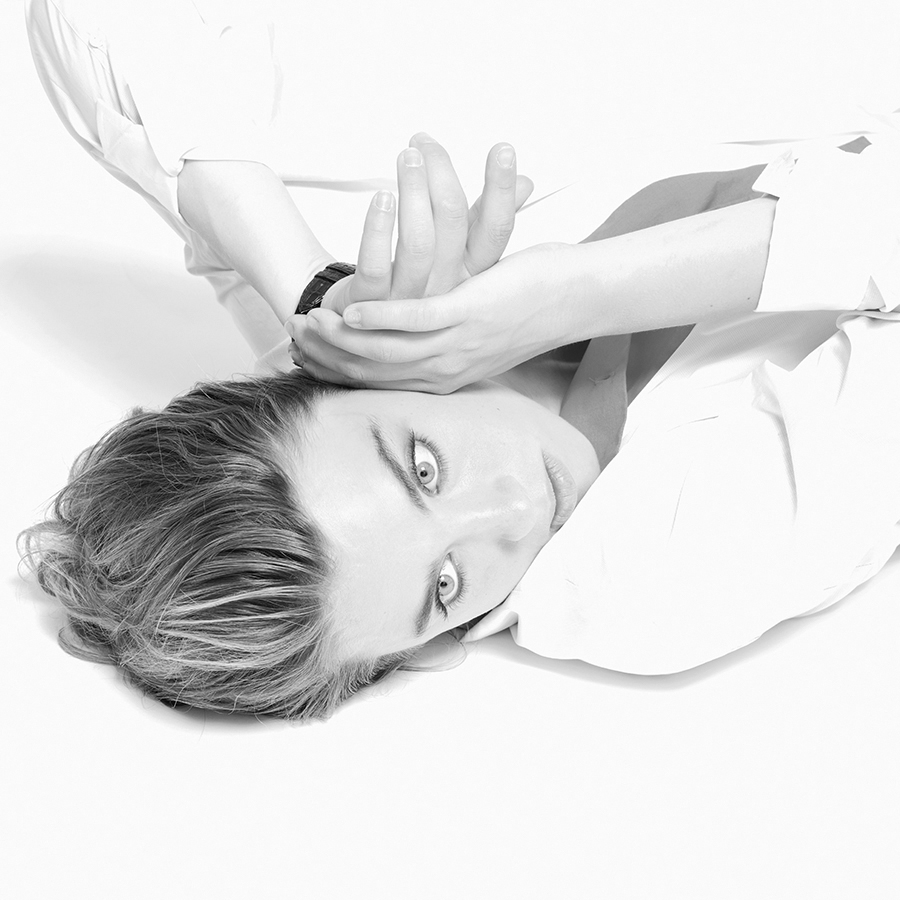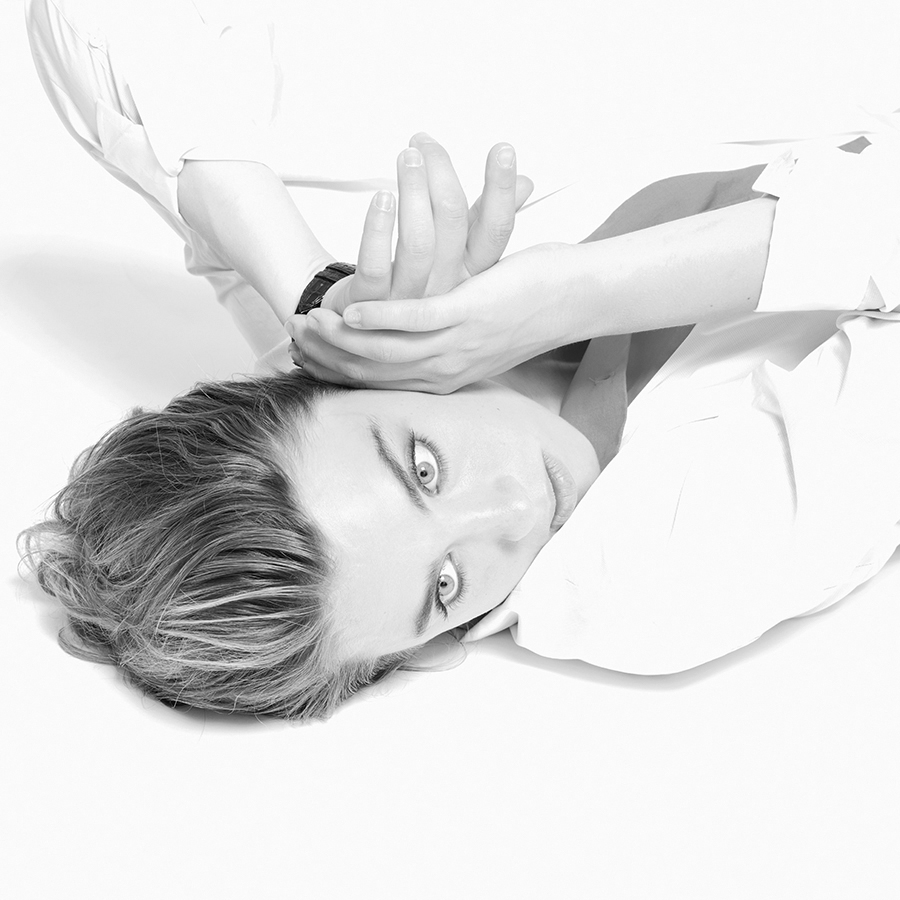
A MEETING BETWEEN ADELE HAENEL & ARMELLE LETURCQ
By Crash redaction
NOMINATED FOR A FRENCH CÉSAR FOR BEST NEW ACTRESS IN 2008, ADÈLE HAENEL, A DRIVEN AND ATYPICAL YOUNG ACTRESS, PLAYS THE LEAD ROLE IN THE LATEST FILM FROM BERTRAND BONELLO, HOUSE OF TOLERANCE, WHICH WILL HIT MOVIE THEATERS ON SEPTEMBER 21. BELOW, SHE TOUCHES ON THE QUESTION OF COMMITMENT, THE PLACE OF WOMEN ON THE SCREEN, AND HER FREE, RELEVANT VISION OF THE FANFARE OF AWARDS AND THE FILM INDUSTRY.
Interview by Armelle Leturcq
HOW DID YOU GET YOUR START IN FILM?
I did drama when I was younger. When I was eleven, my brother was discovered in a casting call organized in his school (Les Diables). So I auditioned, too, and they picked me. In Les Diables, two children who were abandoned at birth go out to look for their parents’ house. The sister is slightly autistic, so the brother wants to find their mother. Eventually she is cured, while his situation gradually falls apart. So the two paths cross.
AND AFTER THIS FIRST MOVIE?
Since the role was rather complex, I attended a six-month course after the film, and I learned a lot. Then I found an agent and discovered the world of auditions. My thinking was that children’s roles served to highlight other characters, so I stopped auditioning for a while. Then, at seventeen, I graduated from high school and ran into the casting director from Les Diables. She suggested I see her to audition for La naissance des pieuvres. So I met the director, Céline Sciamma, we got along well, and worked on the film together.
DID YOU CONTINUE WITH YOUR ACTING CAREER RIGHT AWAY?
After that, I did two years of preparatory classes at HEC; then in 2009, as I was starting university, I found another agent and we started working on Déchaînées, a movie for Swiss TV by Raymond Vouillamoz, which gave me my first lead role. Working on this film was great. It was about feminism in Switzerland. There were very few cuts, which teaches you to work differently. Then I didn’t act for a year. Last year, I acted in three films that were all presented at Cannes, and I also filmed Les Enfants de la Nuit, a short film by Caroline Deruas, which won a Golden Leopard at the Locarno Film Festival (Léopards de Demain). The story is set in 1940 during World War II. It’s about a relationship between a French girl in the Resistance and a German, which gets complicated during the Liberation.
BERTRAND BONELLO’S FILM HOUSE OF TOLERANCE WAS PRESENTED IN THIS YEAR’S CANNES OFFICIAL SELECTION AND IT IS SET TO HIT MOVIE THEATERS SOON. CAN YOU TELL US A BIT ABOUT IT?
House of Tolerance will be released on September 21. It’s my favorite movie I filmed last year. The movie portrays prostitutes living in a brothel at the end of the 19th century, as the times are changing and the brothel is about to close. There are twelve girls in the film: the motherly Madame is played by Noemie Lvovsky, and Jasmine Trinca, an Italian actress who truly brings her character to life, is also in the movie, as well as Céline Sallette, a super actress and my partner in the story, and a lot of other actresses. That’s how I see the film; everything turns around this axis. To compare it with Mulholland Drive, there are keys that help explain different readings of the movie. For me, the key was to see that the customers were directors and producers in real life. Some scenes are even a lot like auditions.
ACTORS ALSO SELL THEIR BODIES.
Yes, and we also sell our emotions. It’s something extremely intimate, but it doesn’t shock me. There are love scenes in the movie, but they’re never awkward. The film’s strength lies in its blend of complexity and simplicity. Bertrand Bonello didn’t try to suppress our natures and was very sensitive toward us. We think we can change our personalities, but we’re not always so flexible.
YOU ALSO ACTED IN A JEAN-JACQUES JAUFRET FILM.
Après le Sud is his first film. It follows the twenty-four hours preceding an event that will become a news story. It’s a film about everyday humiliations and the difficulty of leading a happy life, with different stories that interconnect.
ARE THERE A LOT OF RISKS IN WORKING WITH A DIRECTOR ON THEIR FIRST FILM?
I like the slightly disorganized energy and enthusiasm.There are things that might not work in a film, but I like them.
DO YOU PLAN TO CONTINUE YOUR ACTING CAREER?
I’m going to focus on film now. At first, I didn’t dare commit to acting. I looked at auditions more like personality tests. I hope I never go through a phase like that again. Now I’m used to auditions and even find them fun. I’ve got a good rhythm going, so it would be stupid to quit now. The most important thing is to make a name for yourself. I like what time and letting go can do. There is a real strength in trusting time and not getting frantic. I like the film world; you can’t make generalizations about it since there are so many different aspects.
WHICH FILM WORLD DO YOU BELONG TO?
I’m more involved in something like indie film. It’s important to be seen, but I think it’s stupid to fight for bad movies. I like building something together with the director, and this is more often the case with indie films.
WOULD YOU LIKE TO CONTINUE YOUR CAREER OUTSIDE OF FRANCE?
I would like to work in Germany, and I speak a little German. Head On is one of my favorite movies. During a trip to Berlin I twice crossed paths with Birol Unel, who acted in Head On. When we think of working abroad, we usually think of the United States. But working in the US often means starting from scratch. I’m not looking to work abroad at any price. I’m not sure I want Marion Cotillard’s career, even though her career is certainly remarkable.
DURING FILM SHOOTS, DO YOU GIVE YOUR INPUT ON ACTING AND DIRECTING WITH THE DIRECTOR?
More and more, yes. But I would never say something like, “You should do it like this or that.” It’s more about what we’re trying to express in a given scene. A good screenplay leaves room for interpretation, so you can take things in other directions and build something new. These are the moments when you have a real dialogue with the director. And an actress can certainly understand her character’s motivations and have real relationships with the other actors. This is what happened when I did the first Elie Vajman film, Alyah. The film’s lead role is played by Pio Marmai; he’s a good actor who has a lot of fun, and he’s very quick on the uptake. The scenes we did together worked well because we really wanted to act together, so we were able to stop asking so many questions and take some risks. We all want to have fun; whether it’s drama or comedy, it’s all wonderful. The movie is about a guy in France who has a lot of problems with his brother and girlfriends, so he wants to make a new life in Israel. It’s about the anxiety of failing in life. It’s nice to be a bit clumsy in film and have the option of taking risks early on in your career. I’m very happy to be a part of the new generation of French film. When you’re selected for the Césars (French Oscars), you’re on the César committee and you introduce that year’s films. I watched them all with my brother. We’re very conscientious; you have to know what the current stakes are in film.
WHAT DO YOU THINK OF AWARDS AND PRIZES IN THE FILM INDUSTRY?
I don’t fight to win prizes. I think it’s great that they exist, but they can weigh things down. After a certain age, actors are seen as financial indicators. Producers invest in actors, commit money, and so films work. If we invested more posters and communications money in films that are less well-known, they would work just as well. It’s a vicious cycle. The reason a film makes a lot of money is because we find a lot of money to invest in it. Just like the stock market; there’s a return on investment. It’s like a magic number.
WHAT FUTURE PROJECTS DO YOU HAVE LINED UP?
I played in Confession of a Child of the Century by Sylvie Verheyde, with Pete Doherty and Charlotte Gainsbourg. The film is about the relationship between George Sand and Alfred de Musset, and I can’t wait to see it. Pete Doherty has a lot to offer; he’s truly magnetic. I also have a small role in Trois Mondes by Catherine Corsini; I really wanted to work with her because she’s very direct. I shot a TV movie on Pierre Goldman with Samuel Benchetrit. We played kind of angry left-wingers. There was a lot of improvisation; the acting team was very talented.
TO TOUCH ON A MORE SOCIALLY-INVOLVED ASPECT OF YOUR ACTING CAREER: IF THE OPPORTUNITY AROSE, WOULD YOU LEND YOUR SUPPORT TO A POLITICAL CANDIDATE?
For now, what I think is still in an embryo phase. I don’t feel like I have the right to speak for anyone else. Once you’re famous, if you start to get involved in politics you have to be aware of what you’re supporting. Publicity in politics doesn’t really interest me very much. What’s important are the underlying debates.
HOW DO YOU UNDERSTAND POLITICS?
Power is organized so that there are those in power and the rest; political rhetoric is also very strong and will break any attempt to disrupt this order of power. As one gains more power, one loses one’s illusions but also forgets one’s initial goals. But I would never say “They’re all corrupt,” because there’s a systemic reason why everyone involved in higher levels of politics is forced to compromise, even on the local level, when it comes to their commitments. The fact that French society is a meritocracy helps maintain this order; there’s certainly a system of reproducing elite classes. That’s what we call the circle of peers. There were certain periods of greater social mobility, like the 1970s, but the technical progress we see is not linear. Film also has a responsibility to advance society, especially in terms of male-female relations. There was a study conducted to see if a given film was male-centered or feminist; a lot of questions were asked like: Is there more than one woman in the film? If there are two female characters, do they interact? Do they talk about something other than a boy? You have to show that other things are possible.
PHOTOGRAPHY Frank Perrin / FASHION Armelle Leturcq
MAKE UP Raphael Pita @ B-Agency
HAIR Stephane Delahaye @ B-Agency
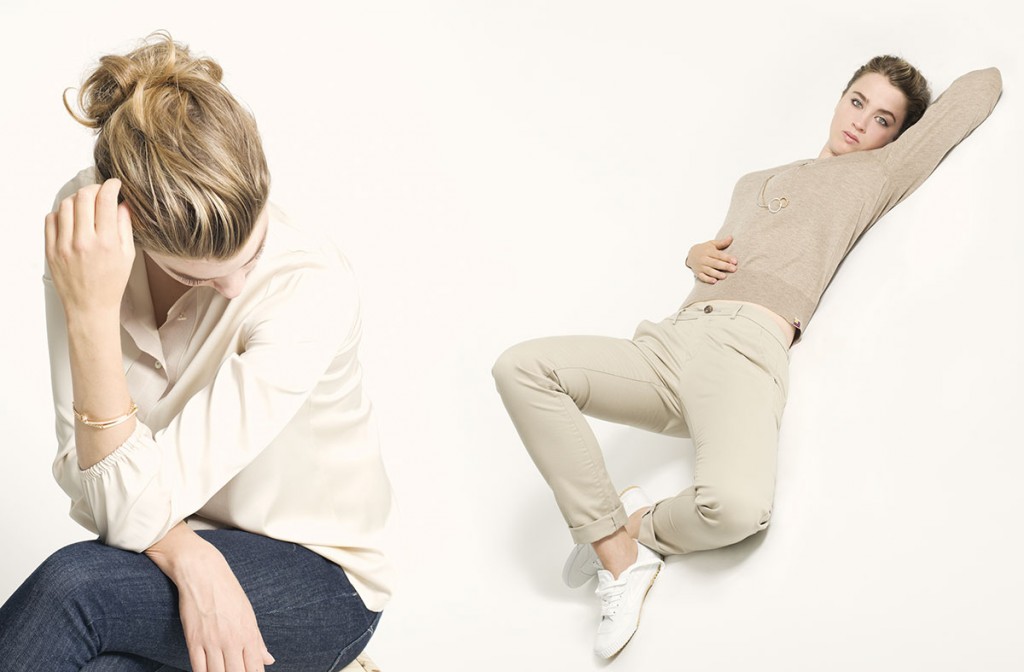
Left: CAROLINA HERRERA Silk shirt LEVI’S Slim dark blue jeans PIAGET “Possession” bracelet in 18 carat yellow gold setted with 20 diamonds and “Possession” bracelet in 18 carat pink gold bracelet setted with 20 diamonds Right: PAUL SMITH Beige sweater UNIQLO Beige chino trousers FEIYUE White sneakers PIAGET “Possession” engraved long necklace in white and pink gold setted with 39 diamonds
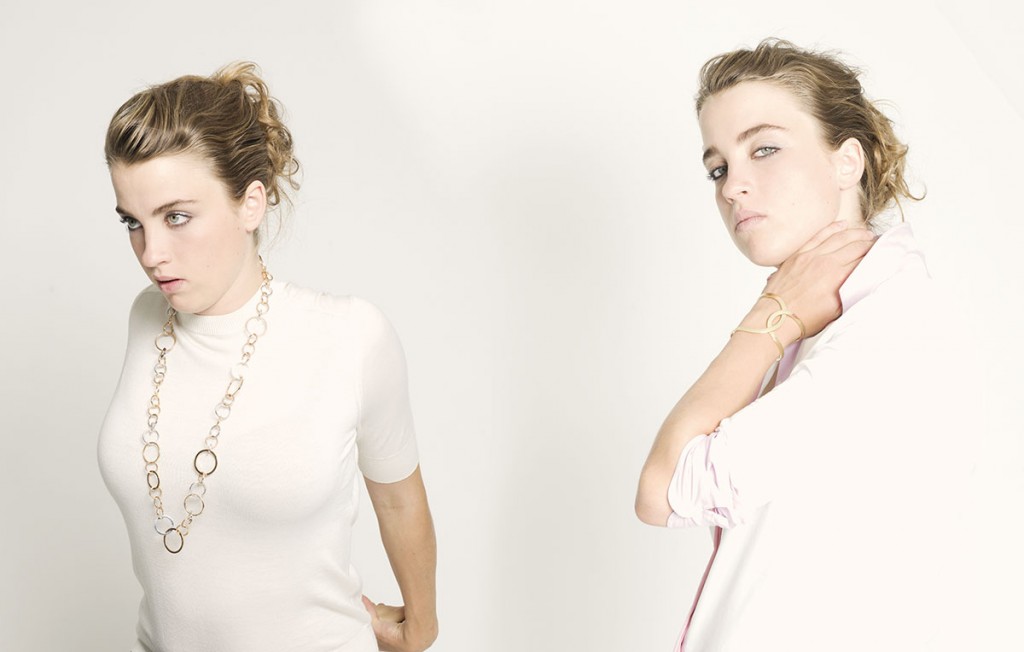
Left: LOUIS VUITTON White merinos shirt PIAGET “Possession” engraved long necklace in white and pink gold Right: CÉLINE White & pink shirt PIAGET “Possession” bracelet in 18 carat yellow gold
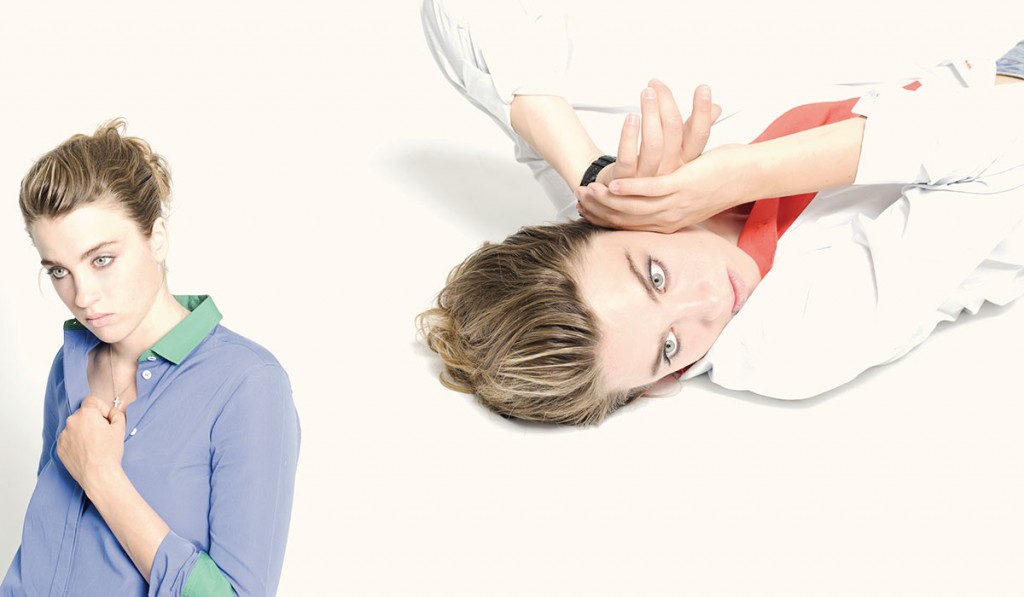
Left: CÉLINE Blue and green shirt PIAGET “Limelight” cross pendent in white gold setted with 11 diamonds Right: PAUL SMITH White and orange shirt
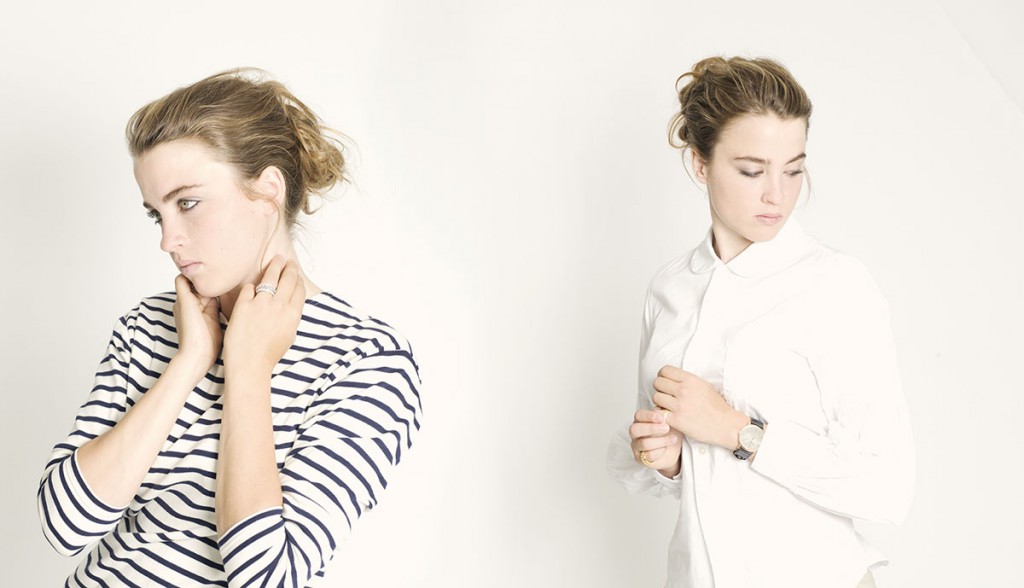
Left: ARMOR LUX Striped marine shirt PIAGET “Possession celebration” ring in 18 carat white gold ring setted with 184 diamonds Right: COMME DES GARÇONS SHIRT White shirt PIAGET “Possession celebration” ring in 18 carat yellow gold and “Possession celebration” ring in 18 carat yellow gold setted with 184 diamonds PIAGET “Altiplano” 38 mm watch in 18 carat pink gold with 18 rubies and a black alligator bracelet.






